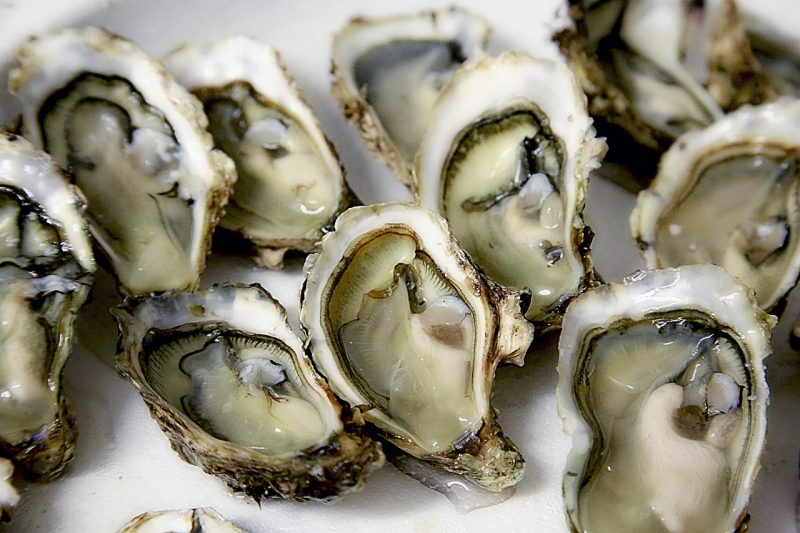1.3 million of American adults suffer from the debilitating effects of rheumatoid arthritis.
Rheumatoid arthritis (RA) is an autoimmune condition. Autoimmune conditions are an overreaction of the immune system. Healthy cells are mistaken as foreign invaders and attacked by the immune system.
As the disease progresses it can become quite debilitating. Symptoms include inflammation, swelling, stiffness, and deformity of joints. For many sufferers, the pain can become excruciating and the affected joints eventually stop functioning.
A new study conducted by researchers from the Kalinga Institute of Industrial Technology (KIIT) in Bhubaneswar, India, has compiled a list of foods proven to treat these symptoms without the use of dangerous medications.
Conventional Arthritis Treatment
Conventional medicine dogma suggests that there is no known cure for rheumatoid arthritis. Doctors often manage the symptoms of RA with a selection of pharmaceutical drugs.
Disease modifying antirheumatic drugs (DMARDs) are typically the initial intervention of most physicians. These drugs artificially inhibit the activity of the immune system. The goal is to slow down degradation of the joints.
If DMARDs are unsuccessful, doctors turn to another class of drugs called biological response modifiers. These drugs also aim at suppressing the over-activity of the immune system. Biological response modifiers can be very costly and come with the risk of serious side effects.
Beyond Symptoms
These interventions do address the symptoms of RA. Yet, they don’t take into account why the immune system is overactive to begin with.
This is unfortunate because food allergies and intolerance cause most autoimmune disease. If someone is consistently consuming food that the immune system has identified as a foreign invader, the immune system becomes hyperactive and begins attacking healthy cells in the body.
Luckily, in recent years more doctors are beginning to test RA patients for common food allergies. Common allergens include gluten, dairy, and eggs. But using food as medicine is still not mainstream.
In fact, the new KIIT research, published in the journal Frontiers in Nutrition, is only the second study to make a complete assessment of the dietary influences on rheumatoid arthritis.
The Study
Researchers from KIIT’s Disease Biology Lab in the School of Biotechnology reviewed the data from many different laboratory experiments and compiled a list of the foods most likely to treat the disease.
According to one of the researchers, Dr. Bhawna Gupta, “Regular consumption of specific dietary fibers, vegetables, fruits and spices, as well as the elimination of components that cause inflammation and damage, can help patients to manage the effects of rheumatoid arthritis.”
The paper cites the incidence of altered gut bacteria (microbiota) in patients with RA. Dr. Gupta explains that this is why “incorporating probiotics into the diet can also reduce the progression and symptoms of this disease.”
The research mentions different dietary interventions. This includes: 7-10 day fasting, vegan diet, Mediterranean diet, elemental diet, and elimination diet.
The researchers found each of these interventions to offer relief to RA patients. Additionally, the paper reviews how specific food groups impact the disease.
Food as Medicine
The study examines types of foods that are effective in the management of RA.
Whole grains – Some studies show the fiber and nutrients in whole grains to be beneficial in feeding gut bacteria and lowering inflammation. However, grains also contain inflammatory lectins if not properly sprouted and/or fermented. Additionally, gluten is one of the primary inflammatory triggers in those with RA.
Fruits – Loaded with vitamins, minerals, fiber, and antioxidants, a small amount of seasonal fruit can be great for lowering inflammation. However, beware of overconsumption. Modern fruits have been bred to contain ridiculous amounts of sugar. Favor small berries and other high fiber low glycemic fruits.
Spices – Spices are powerhouses of anti-inflammatory and antioxidant compounds. The study emphasizes the efficacy of ginger and turmeric in particular. Turmeric is loaded with curcuminoids which are particularly helpful for those with RA
Essential fatty acids – Omega-3 fatty acids are well known for their anti-inflammatory properties. The bioactive form is obtained from cold water fish, krill, grass-fed meat, and a particular strain of algae called chromista.
Synbiotics – This word refers to a combination of probiotics and prebiotics. Probiotics are beneficial bacteria that help to digest food, regulate the immune system, and stabilize mood. Prebiotics are food for probiotics, typically indigestible fiber.
Interestingly, some studies show alcohol to be harmful and pro-inflammatory. Yet, other research showed a positive correlation between alcohol consumption and the alleviation of symptoms. This is not to say those with RA should drink alcohol, but it is an interesting finding of the study.
In conclusion, the paper emphasizes the role of the gut in the mediation of rheumatoid arthritis and associated symptoms. The researchers seemed convinced that this is the mechanism through which food positively impacts those suffering from the disease.
Dr. Gupta summarizes, “Supporting disease management through food and diet does not pose any harmful side effects and is relatively cheap and easy. Doctors, physicians and dieticians can use our study to summarize current proven knowledge on the links between certain foods and rheumatoid arthritis. Knowing the nutritional and medicinal requirements of their patients they can then tailor this information for the betterment of their health.”
For expert guidance on implementing these types of dietary changes into your life join Divine Health’s 21 Day Detox program for FREE today!
References
https://www.sciencedaily.com/releases/2017/11/171108092351.htm
https://www.healthline.com/nutrition/10-foods-for-arthritis
https://www.medicalnewstoday.com/articles/320029.php
https://www.frontiersin.org/articles/10.3389/fnut.2017.00052/full
Check Out More Keto Articles Join Our Keto Group

















